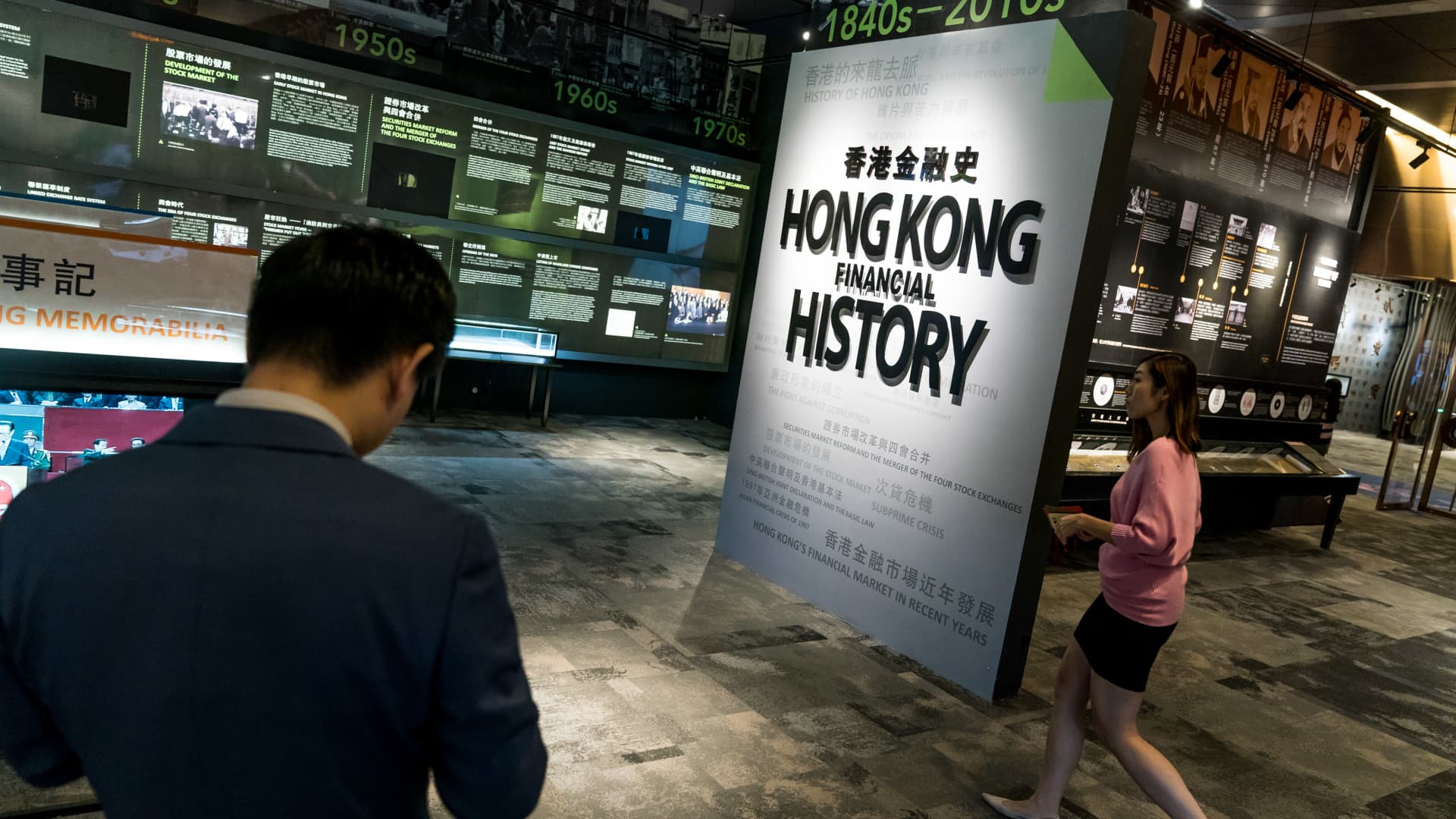
BEIJING — China has joined the global craze over exchange-traded funds, the investment product that lets traders buy and sell a basket of stocks.
Better known as ETFs, the funds surged in popularity in the U.S. after the financial crisis, and built $3 trillion businesses like BlackRock’s iShares ETF brand.
In mainland China, ETFs have multiplied faster than the stock market. In five years, the number of ETFs more than quadrupled to 645, while the number of stocks rose by a mere 53% to 4,615.
That’s according to official data and a report from Hong Kong Exchanges and Clearing, which also stated the mainland ETF market has become a 1.4 trillion yuan ($209 billion) business, more than tripling in just five years.
A regulatory change that took effect Monday opened that ETF market to overseas investors via Hong Kong — a program called the ETF Connect.
Beijing-based ChinaAMC, which said it launched the first ETF on the mainland in 2004, rode the industry’s surge and operates 10 of the funds eligible for trading under the new cross-border trading program. Those include ETFs tracking indexes and themes like semiconductor development.
The ETF Connect leans heavily toward the mainland. Of the initial batch of eligible ETFs, 83 are listed on the mainland, versus just four in Hong Kong.
Goldman Sachs predicts $80 billion more in purchases of mainland assets versus those in Hong Kong over the next 10 years.
“Adding Northbound ETFs to one’s A-share portfolio could potentially expand the efficient frontier and improve the risk/reward,” Goldman Sachs analysts wrote in a report this week. “While the initial Southbound eligible universe looks narrow, the underlying constituents still offer mainland investors broad exposure to HK-listed Internet and Financial stocks.”
Chinese internet tech giants like Tencent and Alibaba have listings in Hong Kong but not the mainland. On the other hand, many China-focused companies are only listed on the mainland.
One of the things the ETF Connect can do is boost international investors’ understanding of mainland China ETFs and increase the products’ influence, Xu Meng, a ChinaAMC fund manager, said in a statement. Xu is also executive general manager of the firm’s quantitative investment department.
ChinaAMC claims that as of the end of 2021, it had more than 300 billion yuan in passively managed assets.
New links to mainland China
The same day the ETF Connect launched, Chinese regulators announced a new program — set to take effect in about six months — that would allow investment in financial derivatives on the mainland via Hong Kong.
A subsequent phase of the program is set to allow mainland investors to trade financial derivatives in Hong Kong.
Those moves to connect Hong Kong and mainland markets follow similar programs for stocks and bonds that began in 2014. Mainland China is home to the world’s second-largest stock market by value.
More ETFs to come
Other financial firms are coming to the ETF market — with a focus on greater China clients wanting to invest internationally through Hong Kong.
Wealth manager Hywin Holdings, based in Shanghai with a subsidiary in Hong Kong, launched last week a health care stock index with FactSet, a financial data and software company.
The 40-stock “FactSet Hywin Global Health Care Index” tracks shares of companies mostly listed in Europe or North America — such as AstraZeneca and Merck.
The plan is to commercialize that index with an ETF listed in Hong Kong.
“Hywin’s clients [more than 130,000 across Asia], increasingly, they find the world very fluid, very volatile. They want to capture opportunities but they are less sure these days about picking the stock and picking the timing,” said Nick Xiao, Hywin Holdings’ vice president and CEO of the firm’s overseas business, Hywin International.
After this first co-branded index, Xiao said he expects more collaboration with FactSet to create indexes and ETFs. He noted there are already eight ETFs listed in Hong Kong that track FactSet indexes.
Among institutional investors and money managers in Greater China, nearly 40% said they invested more than half of their assets under management in ETFs, far higher than the 19% share in the U.S., Brown Brothers Harriman found in an annual survey released in January.




